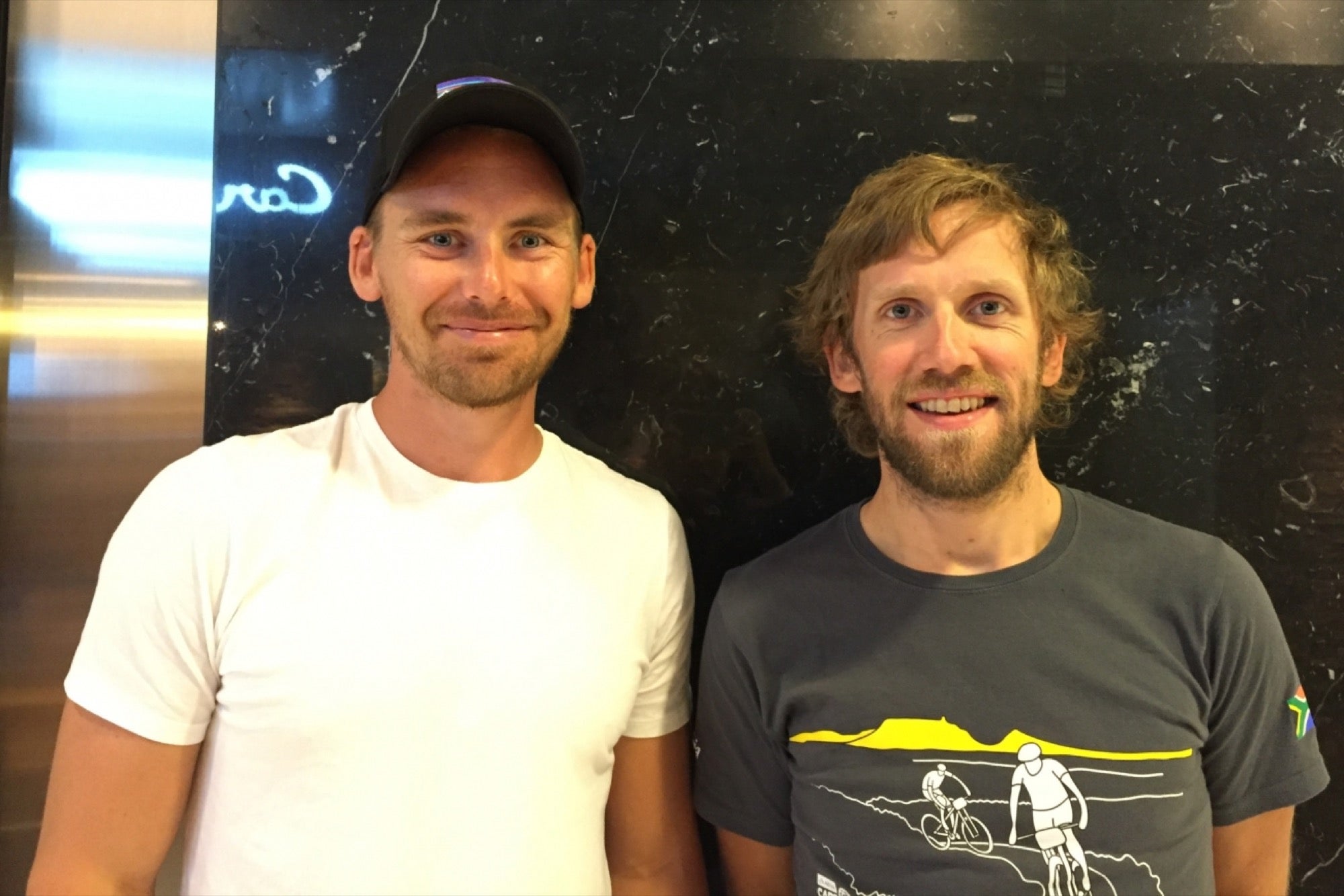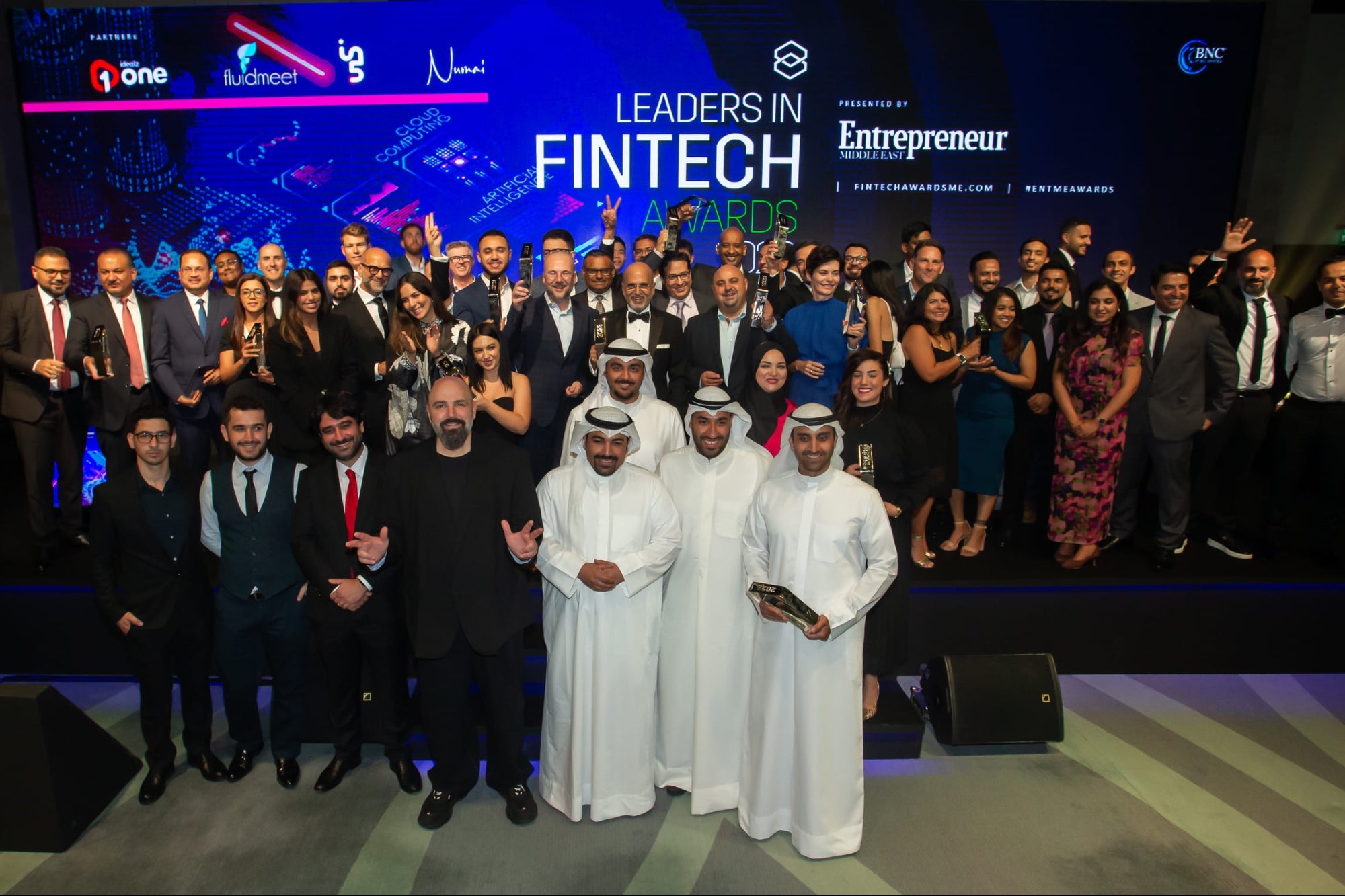Gamifying Fitness: Styck Co-Founders Alexander Light and Ben Walton Styck App, a fitness mobile application for smartphones, is using rewards as bait to capture the fitness-conscious side of its users.
Opinions expressed by Entrepreneur contributors are their own.
You're reading Entrepreneur Middle East, an international franchise of Entrepreneur Media.

If presented with a choice of taking a flight of stairs, or hopping onto an elevator to reach our destination, it's safe to say that many of us would look to the elevator. But if you could earn a free lunch by walking up the stairs, would that change which of the options you'd choose?
Leveraging on the concept of gamification that is gaining popularity across sectors, Alexander Light and Ben Walton's Styck App, a fitness mobile application for smartphones, is using rewards as bait to capture the fitness-conscious side of its users. Styck aims to address the growing number of issues arising from sedentary lifestyles by rewarding users for achieving specific physical activity goals.
Right from food vouchers for completing 9,000 steps in a single day, and going all the way to free Careem rides for a 30-day streak (a streak refers to consecutive days of achieving 7,000 or more steps), Styck infuses an element of fun for people attempting to reach a goal. The rewards are sponsored by cafes, hotels, fitness centers and other corporate partners, which include companies like Careem, Deliveroo, Virgin Atlantic and Surf House Dubai.
"Styck, meaning "pieces' in Swedish, is all about taking small steps to huge and long-lasting achievements, piece-by-piece," says Light, co-founder of Styck, which was launched in March 2015 by the two former Dubizzle colleagues in Dubai. "We know that people are becoming more aware of their health and fitness needs and want to support their growth with data feedback. We are focusing on keeping things simple and digestible for users."
Being bootstrapped, Light says that they have always looked to be as agile as possible and aim to be resourceful in their approach to growth. Without getting into the numbers, he says that growth has exceeded their expectations. While the app counts both individual and corporates as its target market, the company reports higher traction from the corporate sector through its Styck for Companies platform. The startup also plans on a feature that converts users' steps into charitable donations. "We are working on the charitable element of the app, and it's something we are focused on delivering soon," Light says.

How has the use of Styck helped your consumers, and your corporate partners and their employees?
In terms of our impact on employees and their activity levels, we can only speak from both the data we see, and the anecdotal evidence. We have seen an extraordinary reaction from individuals both competing but also being part of a team. We've seen companies rewarding employees with the likes of track days, hot-air balloon rides, half days and even attaching activity achievements to remuneration.
The platform is built to support the company, teams within the company and individual employees. We've made everything super accessible and affordable, so we often see a rapid adoption of the platform, and teams being formed almost instantly. I think we've been lucky to work with companies that truly want to build an active and engaged workforce.
In addition to all the benefits companies have been enjoying, we also see employees and companies enjoying the rewards they're able to achieve from the consumer app. It's great to see our clients and their employees redeeming their rewards.
What strategies do you use to attract new users to Styck and keep them engaged with the app?
We believe that Styck is of interest to people who want to increase the activity levels in their lives. The way we reward users for their achievements is a really strong way we differentiate our app. We have users ranging from ultra-runners and triathletes, through to people starting out on their journey. Styck sets short and long term consistency goals, and can therefore satisfy a number of needs.
Our new rewards act as a great attraction for new users and retention of existing users. We consistently inform our users of new rewards and their activity achievements. We are always building exciting relationships with brands, and will continue to grow the rewards platform for users. Our goal is to help users in creating their first Trybe community. This helps users develop healthy competitiveness and group accountability; key components in developing habits.
We have a strong focus on our CRM and customer engagement, [by] combining informative email and push notification communication. We believe there is always a need to inform our users of developments we make, but also congratulate them on their achievements.

What were the biggest lessons from your endeavors?
(Make) no assumptions: starting our own thing has been like learning a new language. Even though we may understand our product and our vision, it almost certainly is never going to be fully understood by someone else.
Grit is the key: identify goals, and build systems to consistently achieve the goals. But the big differentiator is grit and determination. We have had the opportunity to work with some amazing people and amazing companies in a short period of time, because we are unrelenting in our passion to get Styck in their hands.
Partnerships: by showing people why you're doing it, you will be able to attract the very best partners. We have some amazing brand and company partners, but they are all just people. And to develop those partnerships we have had to resonate deeply with their beliefs and goals. Our partners are a reflection of us and our goals. We would not be able to reach everyone, and make that significant impact we want to make, without supportive and strong partners.
Get feedback: develop a system and a strong desire for feedback. It can be a tough thing to desire and deal with, but the more honest and frequent the feedback is, the better you and your product will become.
Just ask: all we have done for this whole journey is ask. We've asked for help a huge amount of times, we've asked for time, we've asked brands to be partners, but we've never been afraid to ask.
What do you think startups/entrepreneurs can do to support each other?
There's a huge amount of skills, knowledge and expertise that the startup community possesses, but very few of these are expressed or shared. I believe that there are huge opportunities to collaborate and bring members together with an aim of solving shared problems.
I feel there's a need for senior and more experienced members of the community to step up as mentors, and really guide the current crop and I believe that as fellow entrepreneurs there are times we can offer our complimentary skills to each other to help reach the next level.












